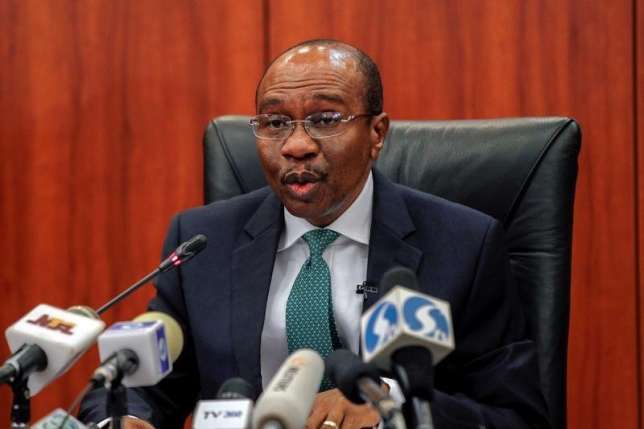
Nigeria Spends $500m on Oil Palm Importation Annually
Nigeria spends not less than $500 million on oil palm importation annually, Central Bank Nigeria (CBN) Governor Mr Godwin Emefiele has said.
The CBN Governor stated this at a Stakeholders Meeting on the Palm Oil Value Chain organized by Central Bank of Nigeria in Abuja.
Emefiele said despite placing oil palm in the forex exclusion list, official figures indicate that importation of palm oil had declined by about 40 per cent from the peak of 506,000 MTs in 2014 to 302,000 MT in 2017.
“This indicates that Nigeria still expends close to $500 million on oil palm importation annually and we are determined to change this narrative. We intend to support improved production of palm oil to meet not only the domestic needs of the market, but to also increase our exports in order to improve our forex earnings”, he said.
The CBN Boss noted that the stakeholders meeting was important as it forms part of Nigeria’s overall strategy to reduce reliance on crude oil imports, diversify the productive base of our economy, create jobs and conserve our foreign exchange.
He said if the country had kept pace with her peers in supporting improved cultivation of palm oil, at the current global market price of $600 per tonne, and an assumed production level of 16m tonnes, Nigeria could have generated close to $10bn worth of foreign exchange for the country.
According to him, this analysis does not take into consideration the amount of jobs that could have been created in the rural communities from large scale small holder developments.
He noted “Two weeks ago, we met with stakeholders in the Cotton, Textile & Garment sector where we announced some policy measures. These measures included the reinforcement of the ban on the use of forex from official sources to finance import of textiles.
“Steps are currently being taken to penalize smugglers of textile materials who are utilizing our financial system to conduct these illegal activities. We also agreed that textile manufacturers will be allowed to import cotton in 2019, but they must engage in backward integration efforts that will support local cultivation of cotton, in order to feed their factories by 2020.
He further stated that efforts are also being made to fast-track the financing of 100,000 cotton farmers for the 2019 farming season, in order to meet the needs of our ginneries.
According to him, these measures have started bearing fruit with enquiries by various stakeholders and investors on how they can support improved production of textiles locally, stressing that these steps are necessary in order to address the loss of over $4 billion expended on textile importation annually.
